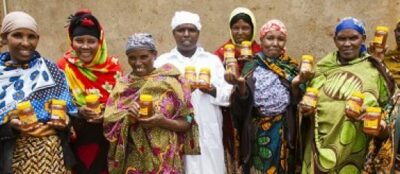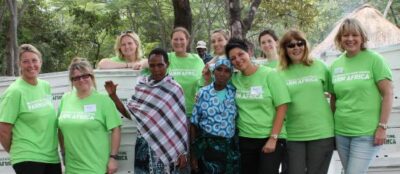Stories
Tanzania
17 October 2017
Beekeeping sends children to school
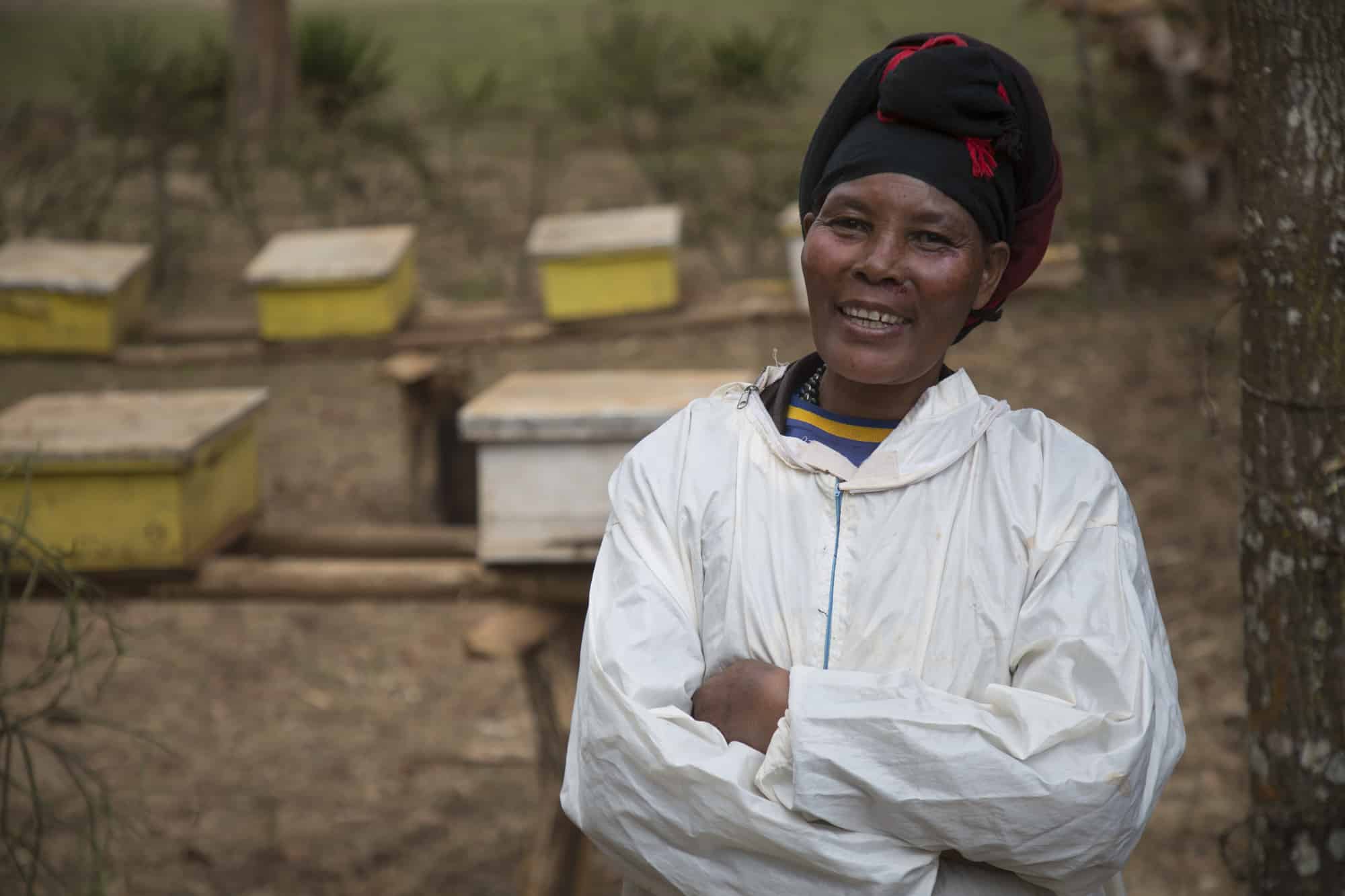
Farm Africa / Jon Spaull
Meet Regina Alfred, a 45-year-old beekeeper living in Bermi in the Manyara region of Tanzania. She’s one of 23,000 people living near the endangered Nou Forest who Farm Africa has helped to earn money from the forest while protecting its resources for future generations.
Regina developed her interest in beekeeping from her husband who, after moving to another village, left her the owner of five traditional beehives suspended high in trees.
Traditional beehives have long been a barrier for women to engage in beekeeping in this area as it is culturally unacceptable for women to climb trees.
To enhance Regina’s beekeeping business, Farm Africa provided Regina with five Langstroth beehives, which sit on the ground. These hives have made honey production much easier: “Farm Africa gave me five Langstroth hives. With the old hives you have to climb trees. I could not climb the trees myself so I had to ask the youths to climb them for me because how could I climb them myself?” says Regina.
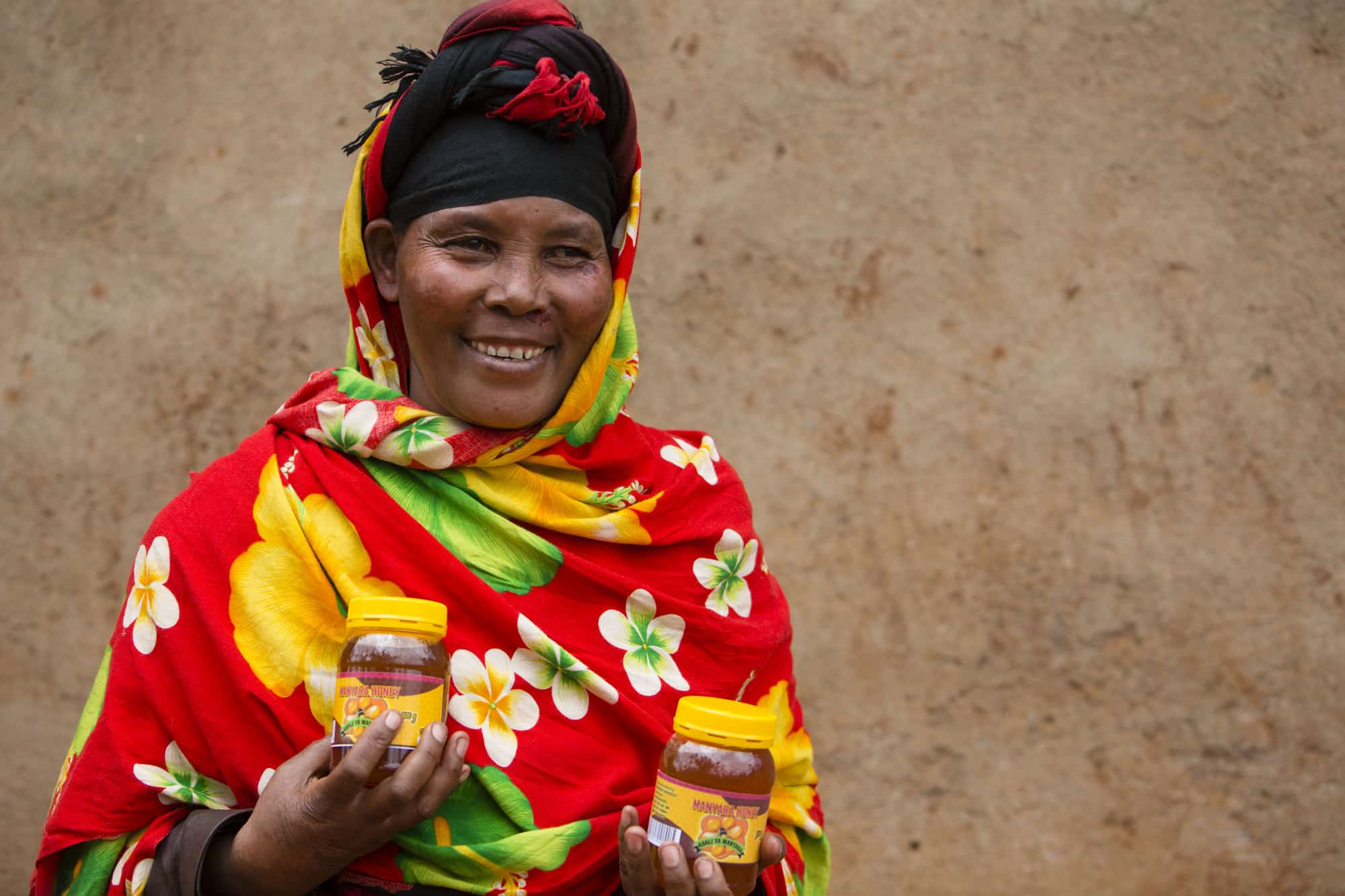
Farm Africa / Jon Spaull
Since using the Langstroth hives, Regina has been able to produce more honey compared to the traditional hives. Regina told us: “I can harvest 15-20kg of honey a year from the Langstroth hives, but only get 8-10kg from the traditional hives”.
It’s been a struggle for Regina to support her children, but she’s been determined to give them as good a start in life as she can.
"The challenge for women is that most of the time, we are the ones who look after the family. I didn’t use to have much capability to help my children, but I have tried my best to help them get somewhere in life, and being able to make money from honey has given me some relief in paying their school costs and paying other household costs."
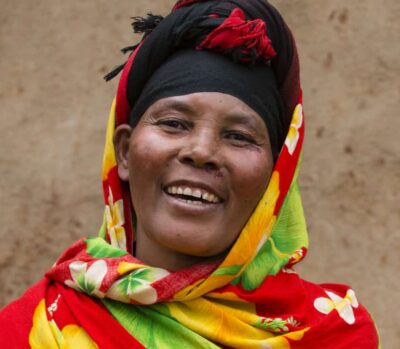
Regina
Beekeeper, Manyara, Tanzania
Regina took part in the Big Beehive Build, which built 100 more beehives in three days. The hives were distributed amongst the Bermi beekeeping group.
The additional hives are helping Regina expand her honey production business, and earn more money: funds that will be put to good use making sure her youngest child gets a good education: “The money from this year’s honey harvest will pay her school fees.”
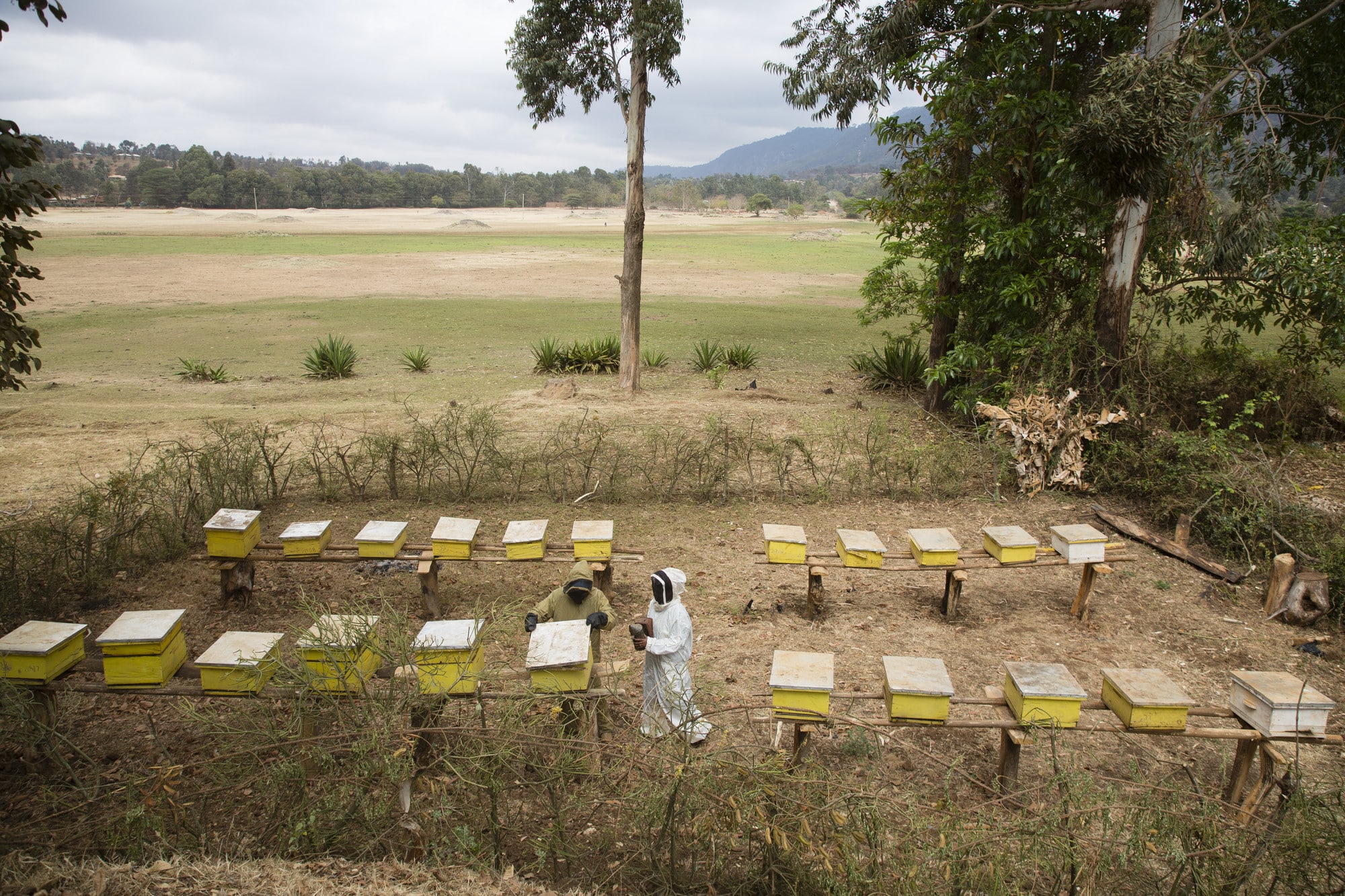
Farm Africa / Jon Spaull
As well as benefitting from the money from the honey sales, Regina and her family eat the honey – “We eat it at home, on bread for breakfast and we put it in tea and porridge” she says, “being able to produce honey myself saves me money rather than having to buy it”.
The forest, meanwhile, benefits from honey production in the area as beekeepers have an incentive to protect the forest by planting fruit trees to attract more bees.

